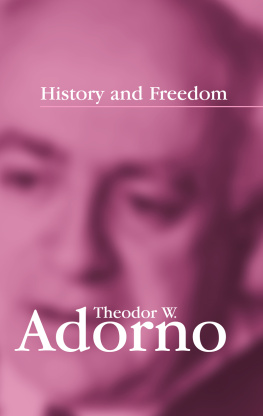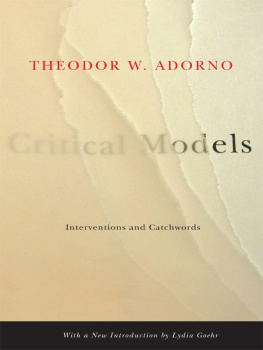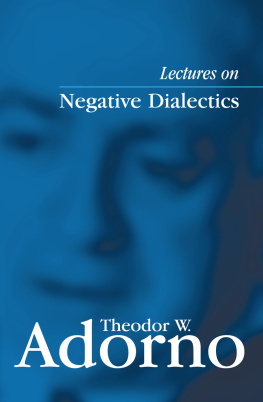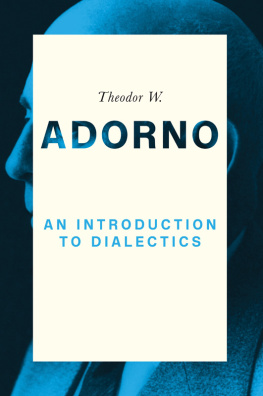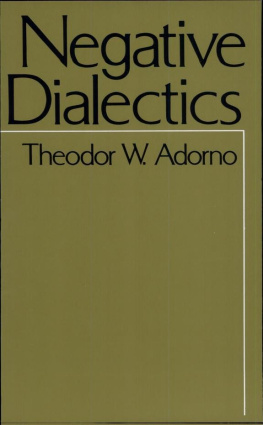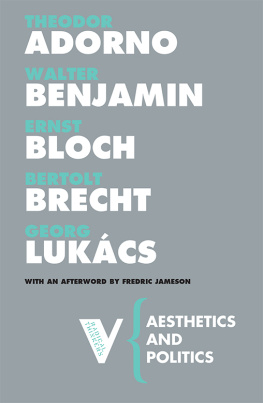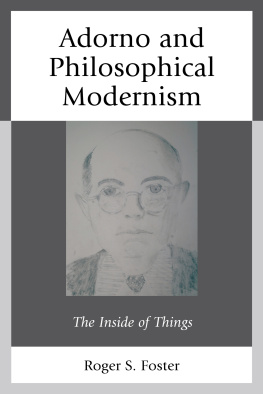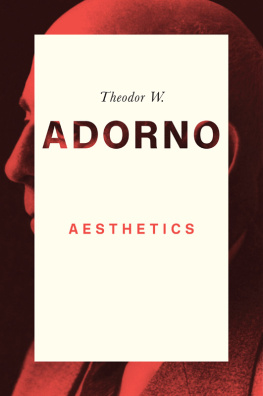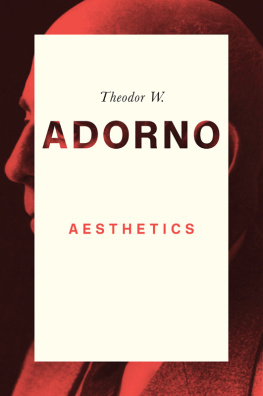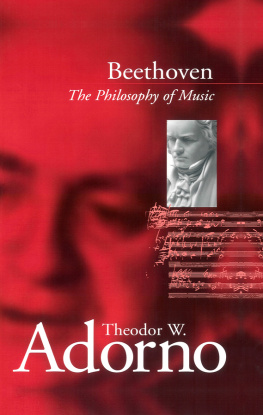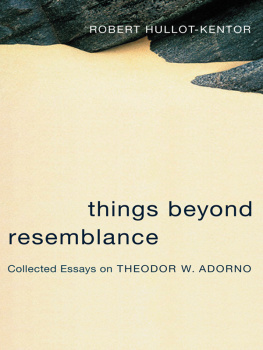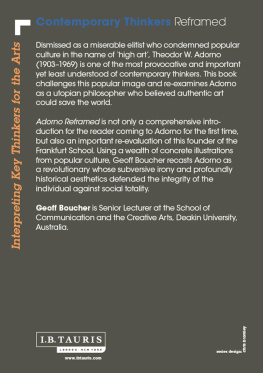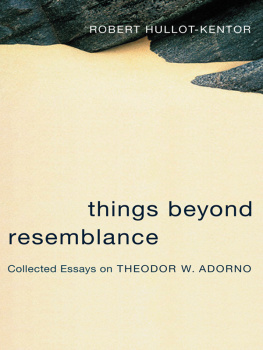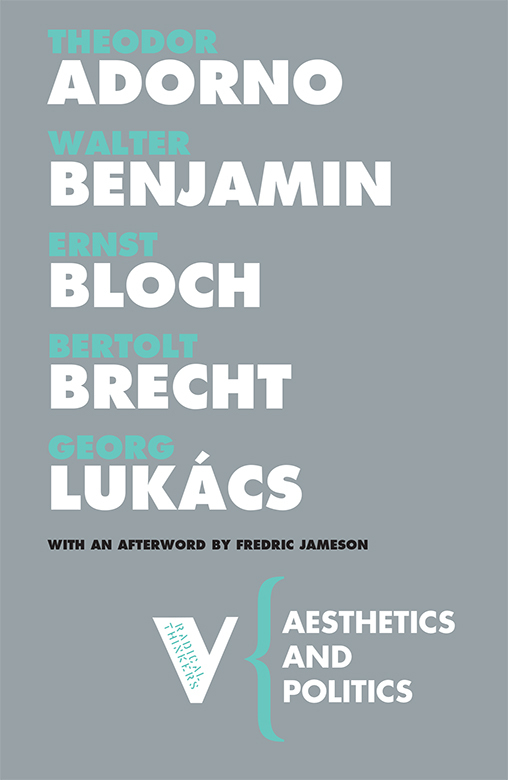AESTHETICS AND POLITICS
Theodor Adorno
Walter Benjamin
Ernst Bloch
Bertolt Brecht
Georg Lukcs
with an afterword by
Fredric Jameson

Ernst Bloch Discussing Expressionism first published in Das Wort 1938 , then in Erbshaft dieser Zeit , Frankfurt 1962 Suhrkamp Verlag; Georg Lukcs Realism in the Balance first published in Das Wort 1938, then in Probleme des Realismus , Neuwied 1971 Artsijus; Bertolt Brecht texts of Against Georg Lukcs first published in Schriften zer Kunst und Literatur , Frankfurt 1967 Stefan Brecht 1967, All rights reserved through Suhrkamp Verlag. Walter Benjamin Conversations with Brecht first published in Versuche ber Brecht , Frankfurt 1966 Suhrkamp Verlag this translation first published in Walter Benjamin, Understanding Brecht , London 1973 NLB; Theodor Adorno Letters to Walter Benjamin first published in Uber Walter Benjamin , Frankfurt 1970 Suhrkamp Verlag, and Walter Benjamin Reply published in Briefe II , Frankfurt 1966 Suhrkamp these translations first published in New Left Review, September-October 1973 New Left Review; Theodor Adorno Reconciliation under Duress and Engagement published in Noten zur Literatur II and III , Frankfurt 1961 and 1965 Suhrkamp Verlag; Fredric Jameson Reflections in Conclusion NLB 1977
Aesthetics and Politics first published 1977 NLB 1977
Verso edition first published 1980
This edition published by Verso 2007
Verso
UK: 6 Meard Street, London W1F 0EG
USA: 20 Jay Street, Suite1010, Brooklyn, NY, 11201
www.versobooks.com
Verso is the imprint of New Left Books
ISBN-13: 978-1-84467-570-8
eISBN-13 (US): 978-1-78873-528-5
eISBN-13 (UK): 978-1-78873-529-2
British Library Cataloguing in Publication Data
A catalogue record for this book is available from the British Library
Library of Congress Cataloging-in-Publication Data
A catalog record for this book is available from the Library of Congress
Printed in the UK by CPI Bookmarque, Croydon, CR0 4TD
Contents
Publishers Note
The texts assembled in this volume have been selected for the coherence of their inter-relationships. Brief presentations are designed to provide the Anglo-Saxon reader with biographical and cultural background to the successive exchanges contained in them. They were prepared by Rodney Livingstone, Perry Anderson and Francis Mulhern. The translators of the texts Anya Bostock, Stuart Hood, Rodney Livingstone, Francis McDonagh and Harry Zohn are credited at the end of them. Ronald Taylor edited the translations for the volume. Fredric Jamesons essay forms a contemporary conclusion.
NLB
The conflict between Ernst Bloch and Georg Lukcs over expressionism in 1938 forms one of the most revealing episodes in modern German letters. Its resonance is in part due to the criss-crossing of intellectual evolution and political destiny between its two protagonists. The main outlines of the career of Lukcs are now well-known in the Anglo-Saxon world; those of his intimate friend and exact contemporary Bloch less so. Born in Ludwigshafen in the Rhineland in 1885, the son of a railway official, Bloch was educated in Bavaria at Wurzburg and Munich. He soon displayed polymathic gifts, studying philosophy, physics and music. He first met Lukcs when in his early twenties, at a soire of Georg Simmels in Berlin, and later during a visit to Budapest. However, it was in the period of their common residence in Heidelberg, from 1912 to 1914, that the two men were drawn together into an intense philosophical partnership. Paradoxically, in view of their later development, it was Bloch who essentially influenced Lukcs towards serious study of Hegel, while it was Lukcs who directed Bloch towards Christian mysticism, especially the work of Kierkegaard and Dostoievsky. Russia on the eve of the revolution held a magnetic interest for the two men, together with others in Max Webers circle at Heidelberg at the time. The onset of the First World War marked their first divergence: Lukcs answered the call-up in Hungary, to the incomprehension of Bloch whose much more radical rejection of the war took him to Switzerland and a form of revolutionary defeatism. However, even four years later, Lukcs was still suggesting to Bloch that they collaborate together on an Aesthetic, with Bloch contributing to it on music. Blochs first major work, Der Geist der Utopie (1918), a wild synthesis of religio-apocalyptic and proto-socialist ideas, contained ardent tributes to his friend.
The philosophical trajectory of the two men now increasingly separated, as Lukcs exalted the realism of the later Hegel and Bloch defended the irrationalist reaction of Schopenhauer to it. The Nazi seizure of power drove them from Germany. Bloch went to Prague, Lukcs to Moscow. Their responses to the victory of fascism soon proved to be sharply contrasted in emphasis. Blochs book Erbschaft dieser Zeit , published in exile in 1934, took the form of a kaleidoscopic set of aphoristic reflections and evocations from the quotidian and cultural life of Germany in the twenties. It sought to understand the elements of genuine protest however irrational their guise in the revolt of the German petty-bourgeoisie that had been captured by fascism. To extricate these and to win the pauperized petty-bourgeois masses over to the working-class was, he argued, as important a task for the revolution in Germany as the conquest of the peasantry had been in Russia. Lukcs, on the other hand, had from 1931 onwards at a time of extreme Third Period sectarianism in the Comintern been developing literary positions that anticipated the cultural policies of the Popular Front period. Their main watchwords were to be: reverence for the classical heritage of the Enlightenment, rejection of any irrationalist contaminations of it, assimilation of modernist trends in literature to irrationalism, identification of irrationalism with fascism. After the installation of the Nazi dictatorship, Lukcss first major essay was a scathing requisitory of Expressionism as a phenomenon within German culture, published in the journal Internationale Literatur in January 1934.
In it, he argued that Wilhelmine Germany, increasingly a society of parasitic rentiers, had been dominated by philosophies (Neo-Kantianism, Machism, Vitalism) that conjured away the connections between ideology and economics or politics, preventing any perception or critique of imperialist society as a whole. Expressionism had been a literary reflection of that obfuscation. Its creative method was a search for essences pursued through stylization and abstraction. While the Expressionists professed to attain the kernel of reality, they merely gave vent to their own passions, in a subjectivism that verged on the solipsistic, since words were used not referentially but only expressively. Politically, the Expressionists had opposed the War; while in other respects their confusions were a kind of cultural analogue of the political ideology of the Independent Socialists (USPD). The Expressionists voiced a general hostility to the bourgeois, but they were unable to locate bourgeois vices in any particular class. Thus they could discern capitalist symptoms in workers, and could postulate an eternal conflict, beyond mere class struggle, between bourgeois and non-bourgeois. The latter were seen as an elite that should rule the nation, an illusion that eventually led to fascism.


